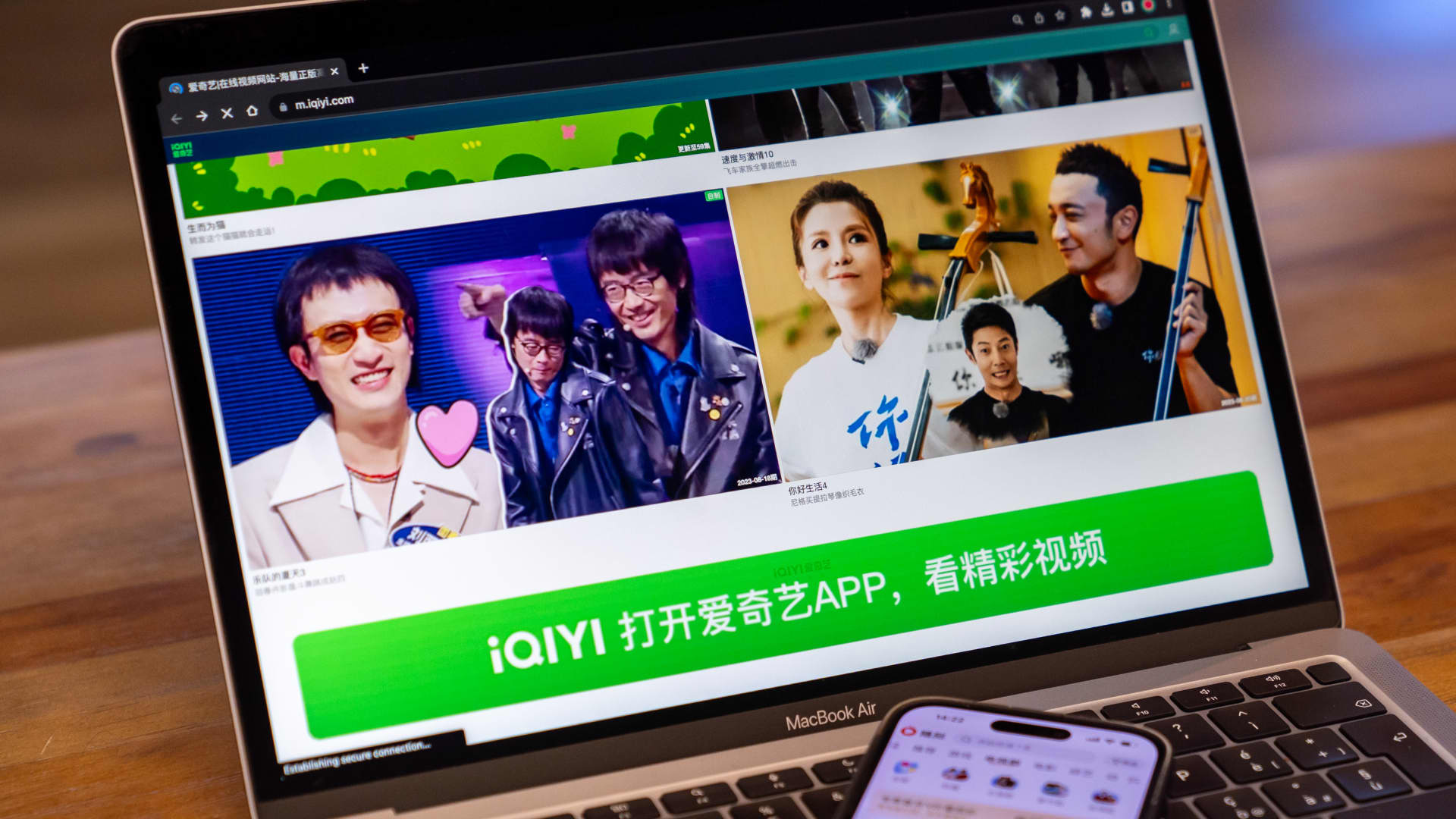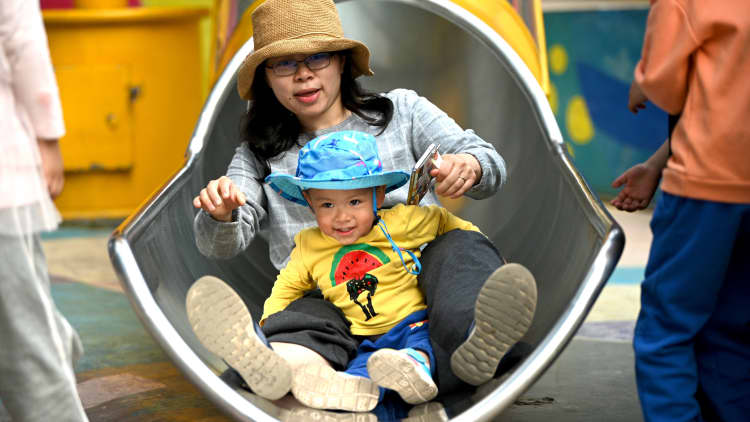

IQiyi, sometimes dubbed the “Netflix” of China, swung to a profit in 2023 for the first time since it listed in the U.S. in 2018.
Bloomberg | Bloomberg | Getty Images
BEIJING — Chinese video streaming platform iQiyi is turning its attention to the country’s aging population, while using artificial intelligence tools to bolster content production.
One of iQiyi’s near-term goals is to improve the product offering for older users, CEO and founder Gong Yu said Tuesday at the company’s annual conference.
“It seems simple but it’s not, because in the past 10, 20 years the motto has been to serve young people, and not be traditional,” he said in Mandarin, translated by CNBC.
He noted how users in their 40s or older are dropping off because increased screen time is accelerating eyesight deterioration, and it’s harder for them to read small text. Gong also pointed to estimates that predict about one-fourth of China’s population will be considered elderly in 2033, rising to one-third in 2053.
China is rapidly aging as fewer people have children and lifespans increase. Births have fallen despite Beijing’s efforts in the last decade to unwind restrictions on households for one child each.
Fewer children, Gong said, means each child becomes more important. He said iQiyi would improve the quality of its content for children.
IQiyi is also tapping artificial intelligence tools for making content production more efficient.
Liu Wenfeng, iQiyi’s chief technology officer, gave a speech at the Tuesday conference about “embracing AI.” He showed off the company’s tools for quickly imitating a multi-camera shot in a virtual environment, and described how the virtually created elements from clothes to buildings could be re-used or commercialized in a future metaverse.
Liu also said iQiyi’s AI tools can significantly reduce the time spent analyzing novels for production-worthy stories, as well as detect which parts of existing dramas bore or interest viewers.
Tuesday morning’s presentations included a clip from OpenAI’s Sora text-to-video promotional video, but iQiyi executives did not share whether they had similar technology at scale.
Instead, Liu emphasized how generative AI allows more people to be creators, and that the scarcest attribute would then be excellent creativity and superior aesthetics.
IQiyi cannot publicly share more details about its AI capabilities due to confidentiality, but creators who partner with the company can learn more, founder Gong said.
Looking ahead, he said the company would also look to tap opportunities in overseas markets as growth in China moderates.
IQiyi in late February reported it swung to a profit in 2023 for the first time since it listed in the U.S. in 2018. For nearly every year since, the company posted annual losses of $1 billion or more.
The company is next due to release quarterly results on May 16.

In late February, iQiyi CFO Wang Jun told CNBC in an exclusive interview he is “excited” about potential new business opportunities with the emergence of OpenAI’s text-to-video tool Sora.
He said such tools can help iQiyi tell stories more creatively, and that internally, it is exploring the text-to-video space though it is not working with Sora.
For 2023, iQiyi said its original content accounted for a record 65% of major dramas it released.
The company claims it now has more than 50 in-house studios that produce more than 200 shows a year.
The growth of in-house production reflects a bigger change in China’s film industry over the last five years, Wang said, noting that previously the majority of content was made by third parties, resulting in bidding wars for shows which raised costs.
Other major Chinese video platforms with longer-form content include Tencent Video, Alibaba-owned Youku and Bilibili.




